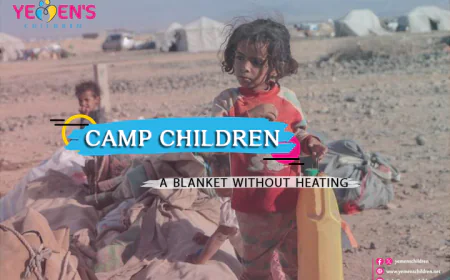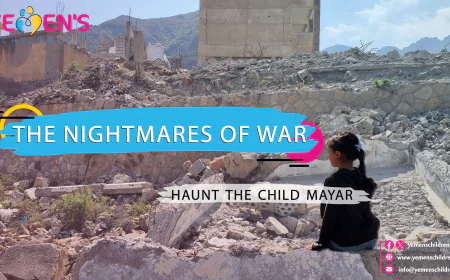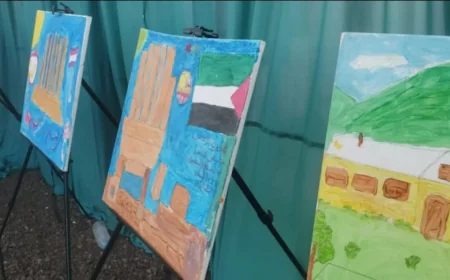He Walked In, But Left Paralyzed: The Tragedy of a Yemeni Child Exposes a Medical Catastrophe

“He walked into the operating room on his own two feet and came out convulsing, unaware of his surroundings.” With these words, the father of two-and-a-half-year-old Hassan Bassam recounts the moment that changed his son’s life forever. It happened at Al-Thawra Hospital in the Yemeni capital, Sana’a, in early January 2025.
Just weeks earlier, Hassan had been a healthy, active child. Today, he is confined to intensive physical therapy and neurological rehabilitation sessions, in a desperate attempt to regain even a fraction of what he lost in mere moments inside the operating room.
Despite the gravity of the tragedy, the family fights its battle alone—without medical support or accountability for those responsible.
“They told us the side effects were temporary and would subside in a few days,” the father says. “But Hassan remained in a coma for an entire month, and since waking up, he has been unable to move or speak.”
According to the father, Hassan was given an overdose of anesthesia, which caused his heart to stop during the operation.
The surgery was supposed to be a routine cosmetic procedure to correct a minor congenital deformity. Instead, a grave medical error turned the family’s life upside down.
Medical Errors: A Constant Threat to Children
The case raises urgent questions about the scale of harm caused by medical errors—especially those involving children—and the devastating consequences for both families and society.
Pediatric specialist Dr. Ghamdan Al-Hajj warns that children are among the most vulnerable to medical mistakes, particularly in under-resourced healthcare systems like Yemen’s.
These errors range from incorrect medication dosages and inaccurate diagnoses to surgical blunders such as improper anesthesia or operations on the wrong site. Other common issues include overlooking drug allergies and poor follow-up in intensive care units, especially in neonatal and premature wards.
Inexperience and Infrastructure Gaps Worsen the Crisis
Dr. Amin Faisal explains that many healthcare providers in Yemen lack specialized pediatric training, greatly increasing the risk of critical errors. The shortage of equipment and supplies, along with an over-reliance on clinical diagnosis in overcrowded hospitals, further complicates treatment.
He emphasizes that the absence of medical safety protocols and effective error-reporting systems makes medical mistakes both frequent and difficult to track—let alone punish.
Pediatric Care: A Neglected Challenge
Dr. Ghamdan highlights that treating children requires a fundamentally different approach compared to adults—due to differences in physiology and drug response. This makes careful, tailored treatment essential.
He adds that children, given their physiological fragility and underdeveloped immune and nervous systems, are particularly susceptible to the impacts of medical errors. Meanwhile, many healthcare facilities in Yemen—especially in rural areas—lack even the basic equipment and personnel needed to handle pediatric cases.
A System Without Accountability
The Ministry of Public Health and Population is the official body responsible for monitoring hospital performance. However, it suffers from limited resources, weak enforcement capacity, and lacks an independent authority to investigate medical negligence.
As a result, families like Hassan’s are left without justice. Errors go unpunished, and negligence becomes a recurring tragedy in Yemen’s medical landscape.
Hassan’s case is not an isolated incident—it’s a clear symptom of a deep-rooted crisis within the Yemeni healthcare system. The cries of children and the anguish of their families continue to fall on deaf ears, in the absence of a safe, accountable healthcare system that guarantees the right to treatment without harm.
The child and his family are in urgent need of support—from medical organizations, government agencies, and good Samaritans alike—to give him a chance at recovery and justice.











